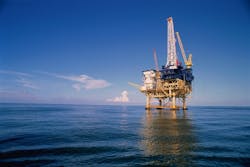Don't Let Environmental Myths Limit Our Climate Change Solutions
One of my pet peeves, since beginning Clark’s Remarks, has been the potential damage caused by over-zealous politicians to an environmental movement that is trying to find real solutions to climate change.
In February 2019, for instance, I called out Rep. Alexandria Ocasio-Cortez's Green New Deal as completely unrealistic. Although I was accused then (not for the first time) of making my column political, that was certainly not the intention. Instead, I take issue with any politician, regardless of their political persuasion, who attempts to promote their own popularity with certain groups of voters by spouting hyperbolic nonsense that they, themselves, may not even believe.
Of course, there are also many examples of non-politician, celebrity uber environmentalists – most of them well-meaning – who run with the anti-business, political rhetoric they hear, regardless of its credibility.
For example, I suspect that most of those who identify as having serious concerns about climate change (myself, included) are generally opposed to offshore oil drilling. No, I don’t like the price of gas right now (I have an RV with a V-10 engine), but I grew up on the Southern California coast watching the oil spills in the Channel Islands. So I am quite familiar with the environmental risks of offshore drilling.
So, imagine how surprised I was to read in a recent New York Post article that a Louisiana Sea Grant College Program study found that 70% of Louisiana’s offshore fishing trips consider oil production platforms (commonly referred to as drilling rigs) as prime fishing sites. Being a bit skeptical, I did a quick web search and learned that virtually all of the Louisiana Gulf fishing charter providers promote the abundance of a wide variety of fish around the oil rigs. It seems that they act as natural reefs and the fish love them.
Some further research revealed that, according to the U.S. Energy Information Administration (EIA), federal offshore oil production in the Gulf of Mexico accounts for 15% of the total U.S. crude oil production. Interestingly, Louisiana claims 75% of those oil rigs. Yet in 2020 – according to the National Oceanic and Atmospheric Administration (NOAA)– Louisiana gulf fishing also boasted 9% of the total U.S. landings reported, making it arguable the largest fishery in the U.S.
The NY Post article also addresses concerns about the quality and safety of the fish caught in the Gulf, citing testing and inspection by such agencies as the FDA Gulf Coast Seafood Laboratory, NOAA’s National Seafood Inspection Laboratory, and the Louisiana Department of Wildlife and Fisheries.
My point to all this is that mass condemnation of offshore oil drilling turns out to not only be counterproductive to the U.S. economy and security, but may also be anti-environmental. We all need to be more open-minded and to follow the actual science, not just the politics, especially on issues like climate change.
A regular contributor to HPAC Engineering and a member of its editorial advisory board, the author is a principal at Sustainable Performance Solutions LLC, a south Florida-based engineering firm focusing on energy and sustainability. He can be reached at [email protected].
About the Author
Larry Clark
A member of HPAC Engineering’s Editorial Advisory Board, Lawrence (Larry) Clark, QCxP, GGP, LEED AP+, is principal of Sustainable Performance Solutions LLC, a South Florida-based engineering firm focused on energy and sustainability consulting. He has more than two dozen published articles on HVAC- and energy-related topics to his credit and frequently lectures on green-building best practices, central-energy-plant optimization, and demand-controlled ventilation.
